Holocaust survivor: ‘Bergen-Belsen is my home’
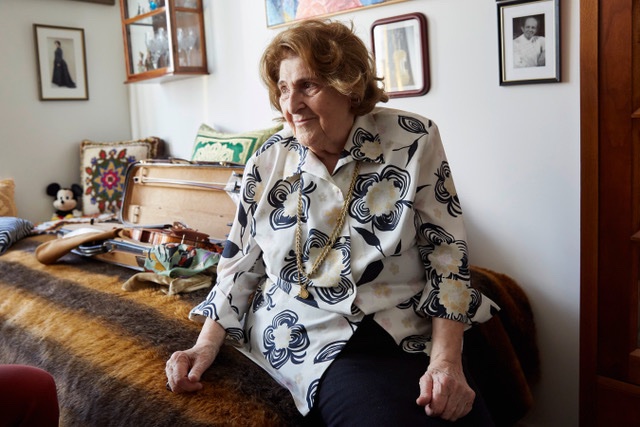
The musician Katharina Hardy survived two concentration camps. In 1956, she fled from Hungary to Switzerland with her husband and two young children. For decades she remained silent about what she had lived through during the Holocaust. Author Simone Müller met her shortly before her death this summer.
Katharina Hardy, with her charisma, energy and approachability, defied easy description. You would have to have met her to understand statements like this one: “Bergen-Belsen is my home.” One of the last contemporary witnesses of the Holocaust in Switzerland, she died in Spiez, canton Bern, on August 5.
Her life, as she described it, was divided into three parts. She was born in Budapest in 1928 and started to play the violin at the age of six. Her childhood in the Hungarian capital became increasingly poisoned by blatant anti-Semitism. She was spat on in the street and expelled from the renowned Franz Liszt Academy of Music when she was 11, “because I was Jewish”.
Then came deportation and two concentration camps: Ravensbrück and Bergen-Belsen, both in northern Germany. Hardy was 16 years old and weighed 29 kilos when British soldiers found her, the only survivor in the barracks.
The second phase of her life lasted from April 1945 until the Soviet invasion of Hungary in 1956. Her violin was still there when she returned to Budapest in August 1945, but it had been smashed by “Russian soldiers”. An American aid organisation gave her a new one.

She started practising again every day, obsessively. “I was a different person, no longer the one I had been when I was deported. I came back and told myself that none of what had happened to me was true. All that was left was work.” For years, she dreamed at night that her mother and sister were sitting on the edge of her bed. “But that was only at night time. During the day none of it was real.”
The third and longest period of her life began in 1956, when she escaped from Hungary across the border to Austria, walking through the snow with her husband and two children, aged three and four. They were fleeing from the Soviet troops and tanks in Budapest.
They finally ended up in the small town of Regensdorf, in canton Zurich. There, nobody knew she had not only fled Communist Hungary but was also a Holocaust survivor. “For 50 years I kept quiet.” No one knew about that other part of her that was always present, “every single day”.
“I try to lead a normal life, to fit in. But for me, this normal life is trivial. Because people just don’t know what can happen, what is actually possible.”
Perfection at all costs
She sits at the kitchen table and straightens a coffee cup. The cup is not on its saucer, but on the small plate intended for the biscuits. She exchanges them. “Everything must be in the right place”.
She cannot stand it when small things are not in order. If glasses or pots are not where they should be, “to the last millimetre”, she quickly gets very upset. Her next sentence trails off: “If there is no longer any order there either…”
She falls silent and puts the biscuits on the table – homemade ones. Whatever Hardy does, she does wholeheartedly. “You have to be perfect. You must always seek to accomplish your tasks perfectly.” She does not let half-measures pass. When teaching the violin, too, she is unrelenting. Mistakes are not accepted.

More
Anti-Semitism in Switzerland
What she demands of herself and of others is what her mother used to expect of her: uncompromising discipline. Her mother, not a musician herself, groomed her two daughters – Piroska, who played the piano, and Katharina, seven years younger, who played the violin. Even during childhood holidays, spent at their grandparents’ house in the countryside, “the violin teacher or a theory teacher always came along.” Hardy explains: “It was also thanks to this discipline that I survived the concentration camps”.
Cracking whips
In November 1944, members of the far-right Hungarian Arrow Cross Party, which collaborated with the Nazis, took Katharina and her mother from their apartment by force. The streets were swarming with people – Jewish men, women and children – who were being herded to a disused brick factory. They spent three days there, before starting the long march.
They covered 120 kilometres on foot in the cold. It was snowing. They slept on football pitches, exposed to the elements. Her mother would shake her so she did not freeze to death. They stopped at a shipyard on the Danube, spending three days there in disastrous hygiene conditions. Her mother fell ill with dysentery. By chance they met her father, who had been deported before them, in the shipyard.
When it was time to move on again, her mother was already very weak and could hardly walk. Katharina pulled her along behind her. They reached Komárom Fortress in Slovakia, where they were locked in a cell. There was just straw and a blanket on the stone floor.
Here the story breaks down into fragments. The memory is sharply defined, but voicing it is difficult. She uses short sentences, cast as if at random; internal images, sketched with words. Her mother is lying on the straw, seriously ill. She wants some milk to drink, so Katharina slips the wedding ring off her finger, summons all her courage, goes over to a guard, and gives him the ring. He brings her a glass of milk; just one.
Then comes the sound of a cracking whip, and soldiers drive Katharina away. The last thing she hears her mother say is the address of her brother, Katharina’s uncle, in New York. Already while they trudged along, her mother had drummed this address into her. “I know it by heart to this day”.
Katharina turns around one more time. “Mother didn’t cry”. She knows that she could not have saved her mother; she could not have prevented her death. But what if she had stayed anyway? “I still blame myself, even today.”
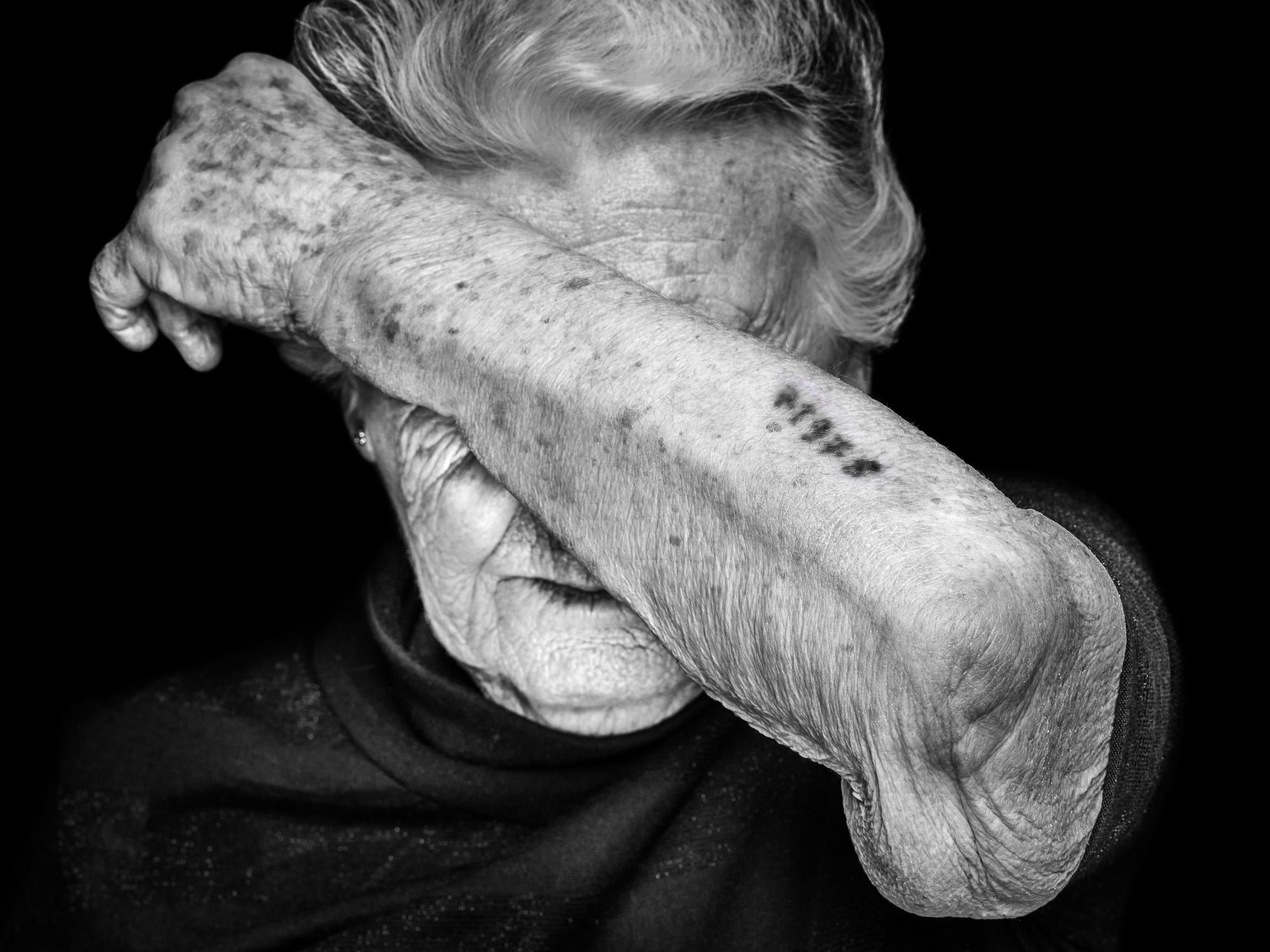
More
The last Swiss Holocaust survivors
‘Death was normal’
She spent two months at Ravensbrück concentration camp – January and February 1945 – before being transferred to Bergen-Belsen. She does not say what she saw or lived through in the two camps. But she describes very precisely what the things she saw there did to her; how they altered her, and her perception of life.
In the concentration camp, she says, the signs were reversed: “Death, not life, was normal.” The daily physical presence of death, corpses on the ground, the constant shootings – life was the exception. This shaped her like nothing else.
It reversed her view of life and death forever. “I don’t see the world the way others do. Actually, I belong to the dead in Bergen-Belsen. I belong in the place that defined me most deeply.”
When British soldiers freed Bergen-Belsen on April 15, 1945, Katharina was lying on the ground with her legs bent. She could not stand or straighten her legs. She could not swallow, nor eat: “I had been in a semi-conscious state for weeks.” She was taken to a field hospital.
By June 1945 she had gained six kilos, and now weighed 35. She met her father again in Budapest, after finding his name on a list of survivors. “It was the only time I ever saw my father cry.” They moved back into their old apartment. A wall was missing; it was freezing cold. “We had no money to rebuild it”.
When she got her new violin, she started to practise. She played and played, despite the cold, her fingers numb. “When I got back to Budapest, I was a different person, with an unbelievable soul. I had seen an inverted world. There was no God, there was nothing – just work and try to move forward. It was very tough. I’ve kept that toughness.”
In the years that followed, Hardy wrested a huge amount of life from death: a career as a musician and a large family – three children, five grandchildren, three great-grandchildren. Many of them have become musicians like her – one son, two grandsons and one granddaughter. “I founded a dynasty of musicians.” She is proud of that.
Katharina Hardy defied description. You had to have met her and talked to her to understand that these two sentences are not contradictory: “It never leaves you for a second.” And: “I have had a wonderful life. Somehow.”
Simone Müller is the author of a collection of testimonies by 15 Holocaust survivors in Switzerland, ‘Bevor Erinnerung Geschichte wird. Überlebende des Holocaust in der Schweiz heute. 15 Porträts’, published in 2022 by Limmat Verlag.
Edited by David Eugster. Translated from German by Julia Bassam/gw
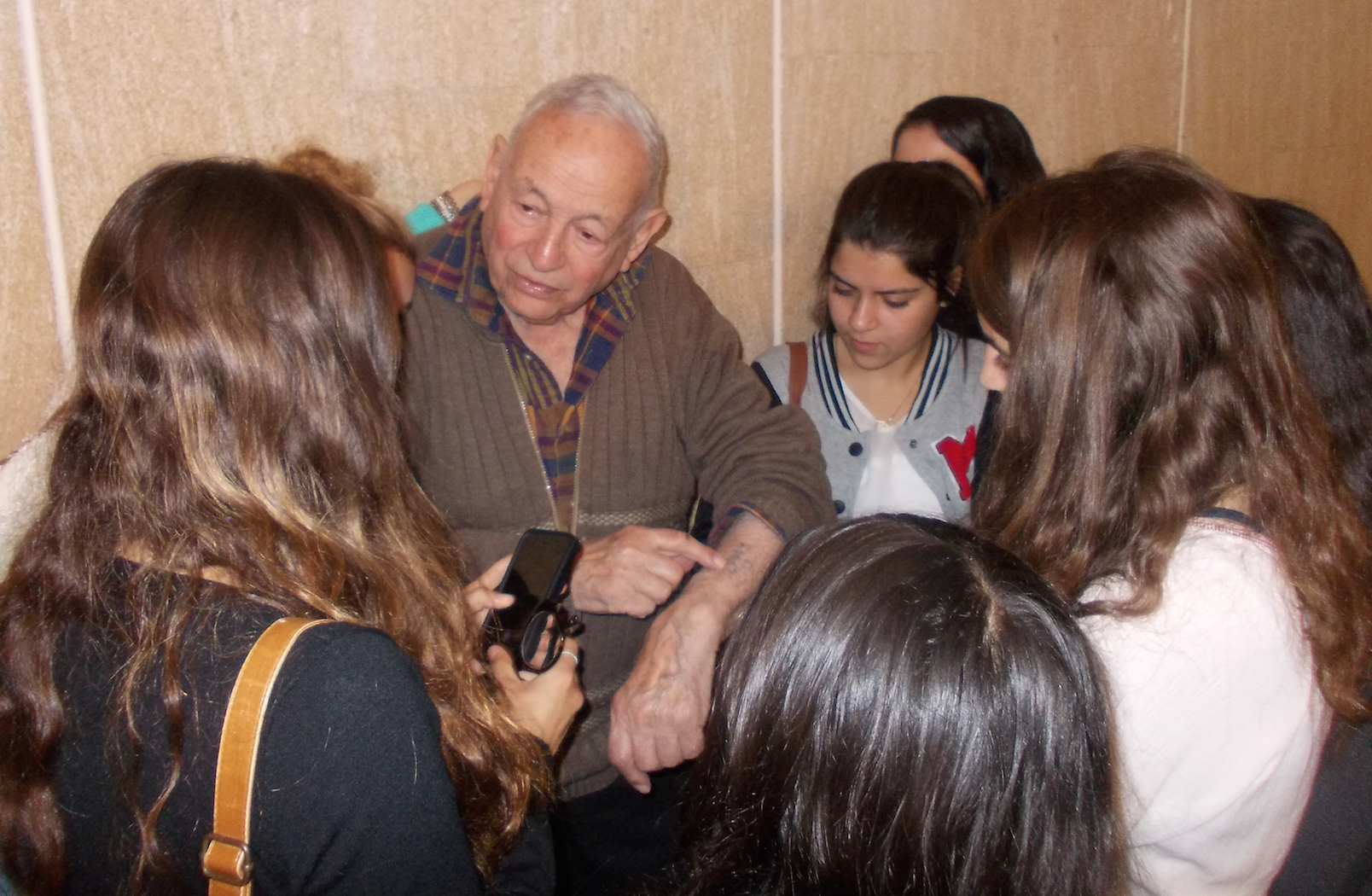
More
Why it’s never too late to learn from Holocaust survivors

In compliance with the JTI standards
More: SWI swissinfo.ch certified by the Journalism Trust Initiative








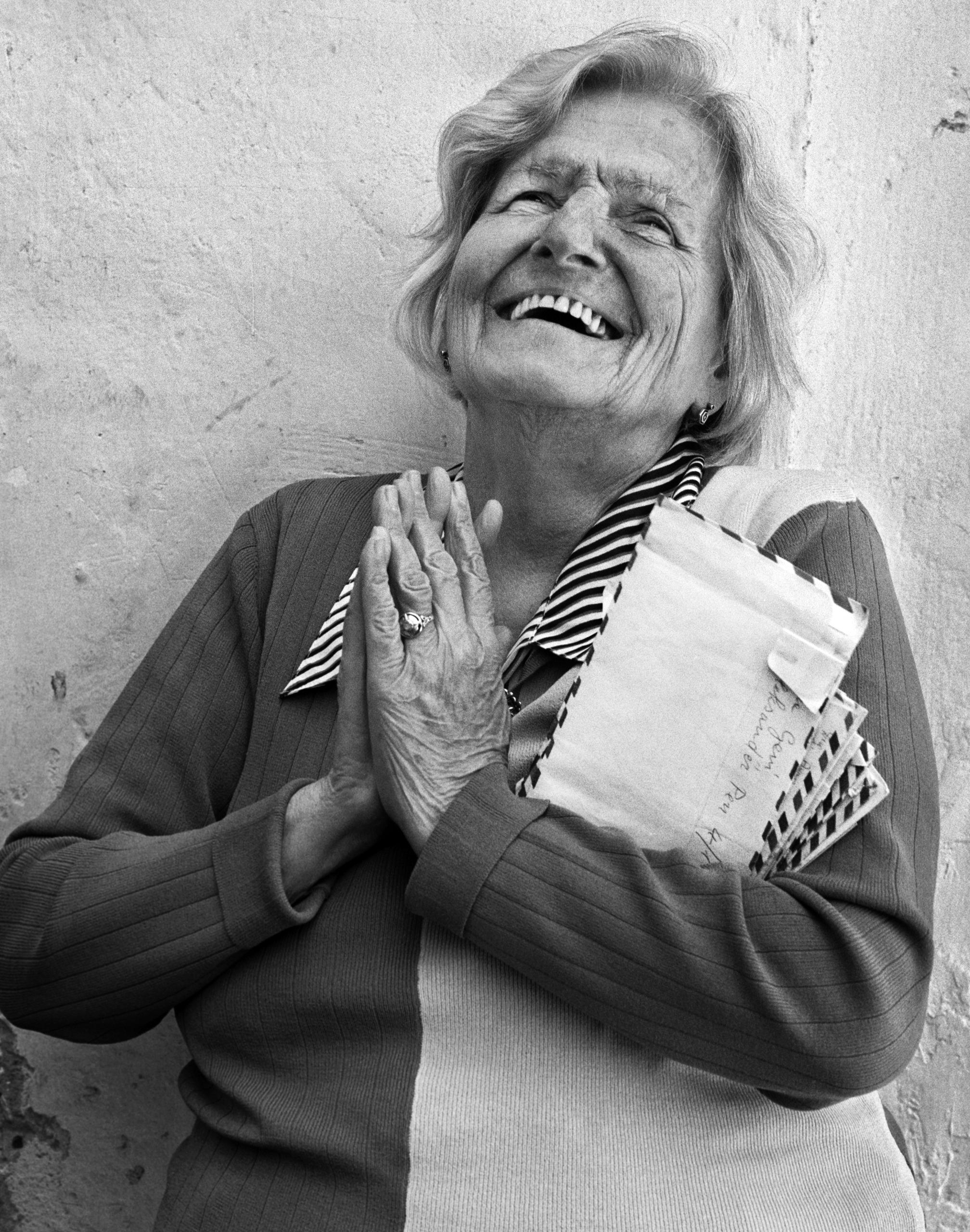
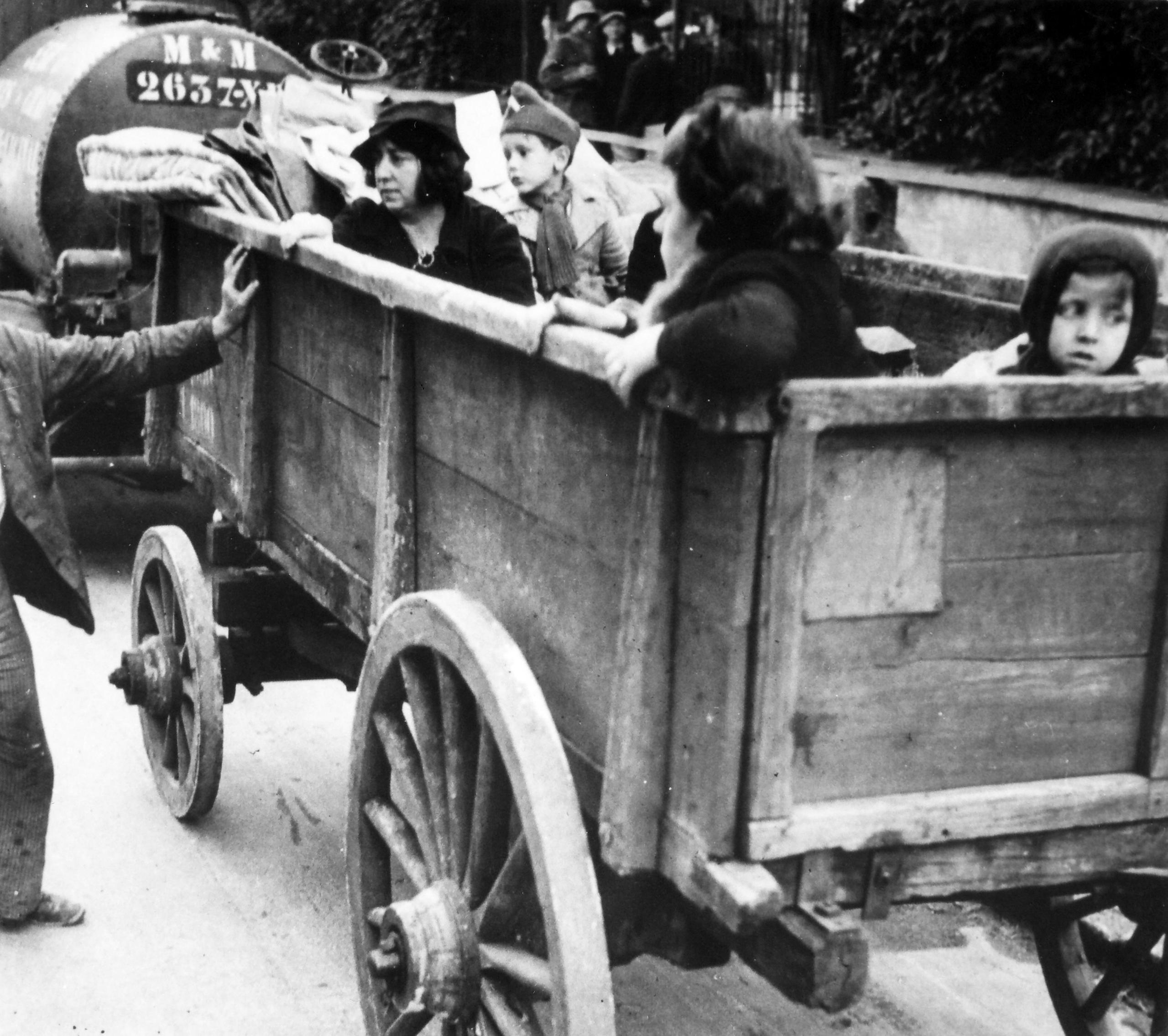
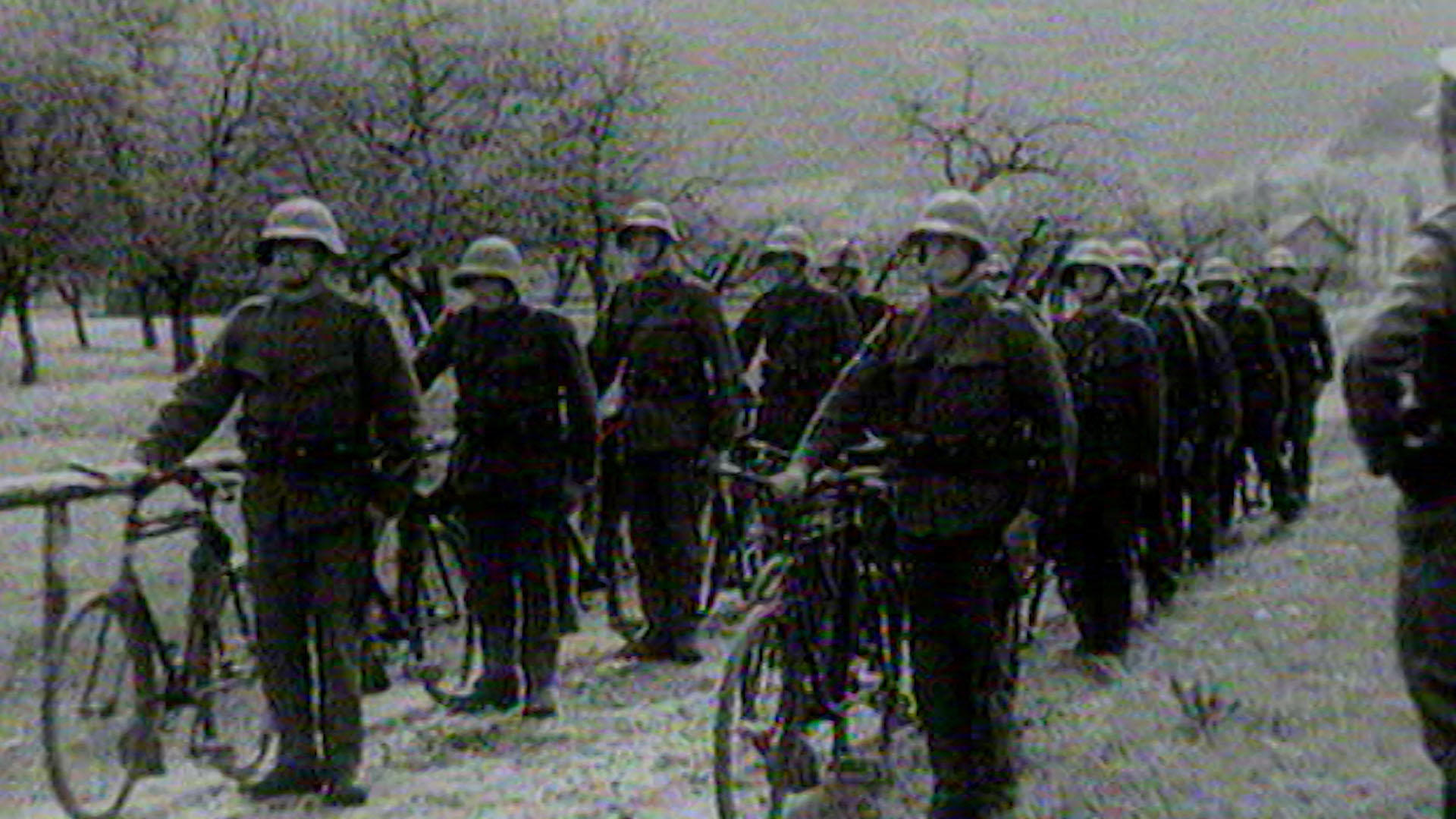
You can find an overview of ongoing debates with our journalists here . Please join us!
If you want to start a conversation about a topic raised in this article or want to report factual errors, email us at english@swissinfo.ch.